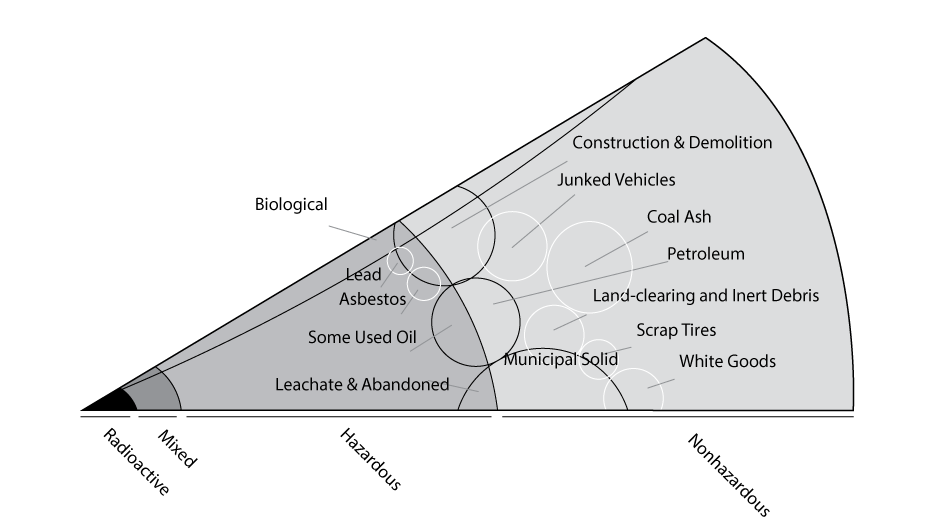The waste map

I place waste at the center of environmental law based on my personal, broad definition of waste. My definition includes anything humans produce that isn’t needed for the purpose of the production and that isn’t used beneficially right away–things that we could do without, such as the heat from an incandescent bulb, in most circumstances. Yes, there are times we might want a light bulb that also produces a lot of heat, but in most settings we could duplicate the desired light quality and quantity with a bulb that saves energy, by not producing excess heat. Similarly, the light from a bulb that is turned on, but not serving any useful purpose, is also waste.
For a working environmental lawyer, though, this is a bit esoteric. What that lawyer, or anyone trying to understand the positive law of the environment, needs is a way to keep all the parts of the legal definition of “solid waste” in place. In other words, our law in NC (and elsewhere in the US) has created many sub-categories of waste, and the regulation of these sub-categories varies widely. Which means the costs vary widely. So I use a waste map that I’ve created to help keep track of regulatory categories of waste.
Read More →